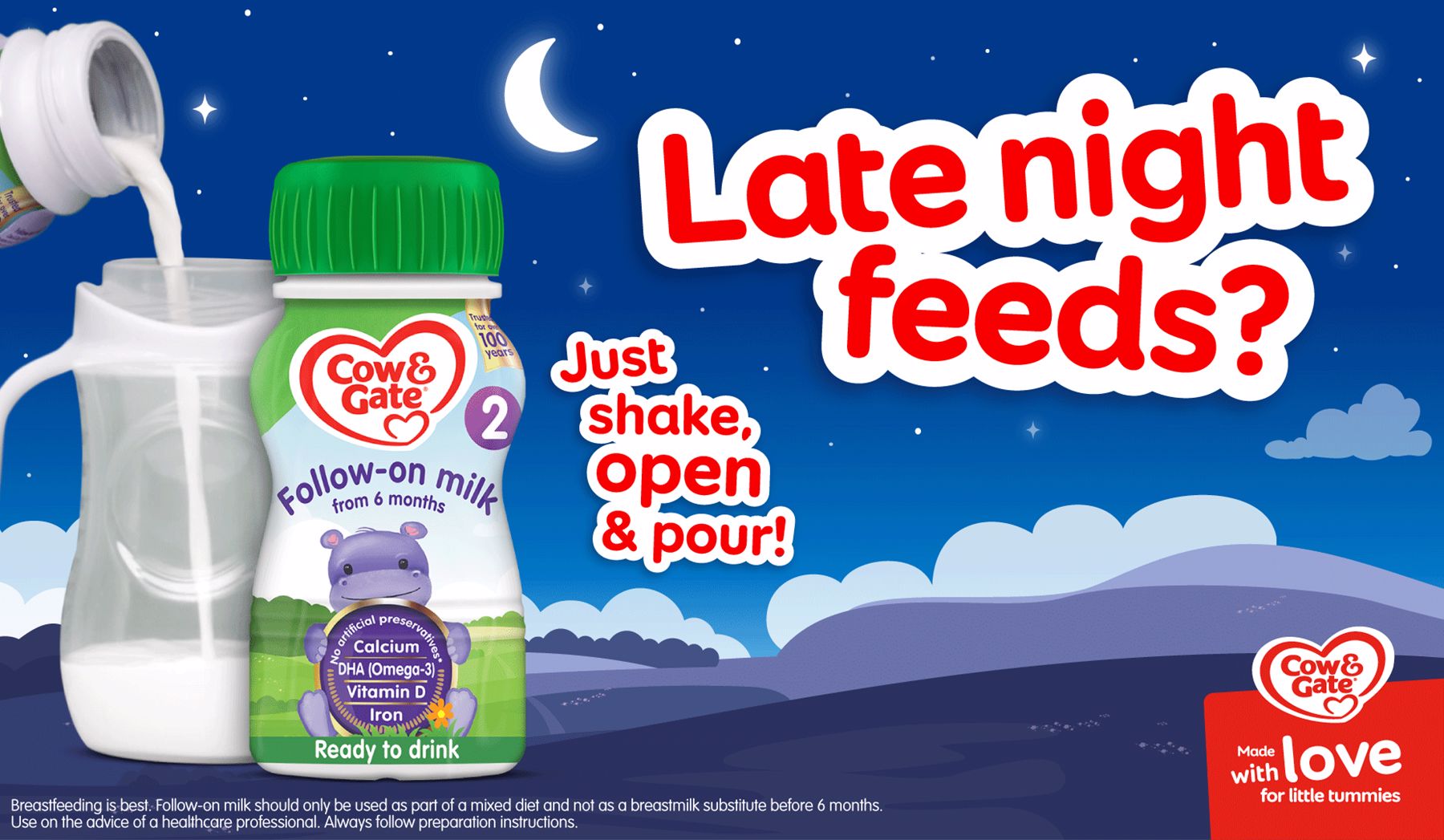So, you're making it through life as a new parent and handling everything it throws at you, including the night feeds. But while you expect your fair share of sleepless nights, it's easy to get caught up wondering whether your little one's schedule is 'normal' for their age.
As your baby grows and develops, their feeding schedule will evolve along with their nutritional needs. With so much change, keeping up with what to expect on your night feeding journey can be difficult. Here, we'll explore night feeds by age to help you understand your baby's needs and make those midnight moments a bit more manageable.
Month 0-3: The Newborn Stage
Night feeds are a frequent and essential part of caring for your newborn in the first three months. Newborns typically feed every 2-3 hours, which holds true even at night.
It's easy to feel like something is wrong or your little one isn't getting enough milk each time, but don't worry; this is normal. Your baby's tiny tummy requires frequent refuelling, and waking up for these feeds is key for their growth and development. If your little one is down for 8-9 hours overnight, expect around 2-4 night feeds during this stage.
Night feeds aren't easy, but you can make easier. Just shake, open & pour with Cow & Gate Ready to Drink Follow-on milk.
Month 4-6: The Transition Period
Around the four to six months mark, you may notice changes in your baby's sleep patterns. Once your little one is navigating their way out of the newborn stage, you can expect their need for night feeds to reduce.
Many babies start to develop a more predictable routine by this stage, and their sleep duration may gradually extend. At last! Some babies can sleep for longer stretches at night, which is when you might see a decrease in the number of night feeds.
Their once tiny tummies have done some growing by this month, and there is a good amount more room in there for around 6 ounces of milk at a time. Still, it's important to remember that every baby is different, and many will still require 1-3 night feeds at this age.
One common disruption to your little one's newfound sleep routine is the 4-month sleep regression. Even if your baby has been sleeping longer stretches and dropping some of their night feeds, they may wake more and need extra feeds through this period. Remember that this will pass and sleep regressions are temporary, so don't be afraid to give your little one extra attention and comfort as they navigate it.
Month 7-9: Introducing Solid Foods
As you start weaning around six months, you might notice further changes in your baby's nighttime feeding habits. Introducing solids can help your little one stay fuller for longer and lead to some long-anticipated solid chunks of sleep!
By the seventh to ninth month, some babies can sleep through the night without requiring a feed. However, some babies may still need one nighttime feed to sustain them until morning. If your little one is breastfed, they might still need multiple night feeds, which is completely normal.
If you have noticed your baby becoming less reliant on their first or second night feed, toward the 9-month mark is a great time to try and drop a feed. Remember always to do this at your little one's pace and ensure they're happy and well fed throughout the process.
Month 10-12: Establishing Sleep Patterns
By the tenth month, many babies have established more predictable sleep patterns. Most can sleep longer without waking up for feeds, meaning you've finally been catching up on some sleep! At this stage, most babies can manage without night feeds.
However, if you've struggled to get in a consistent feeding or sleep routine with your little one, they could still be waking at night. Nutrition-wise, they shouldn't be relying on night feeds, and you might find that it's more of the comfort and contact of the routine they're craving. Try soothing your little one back to sleep without a feed to establish if they're hungry or just seeking reassurance.
While the number of night feeds your little one needs will change with age, it's important to remember that every baby is unique. Be attentive to your baby's cues, and feel free to speak to your Health Visitor or GP if you have concerns about your baby's feeding patterns.





